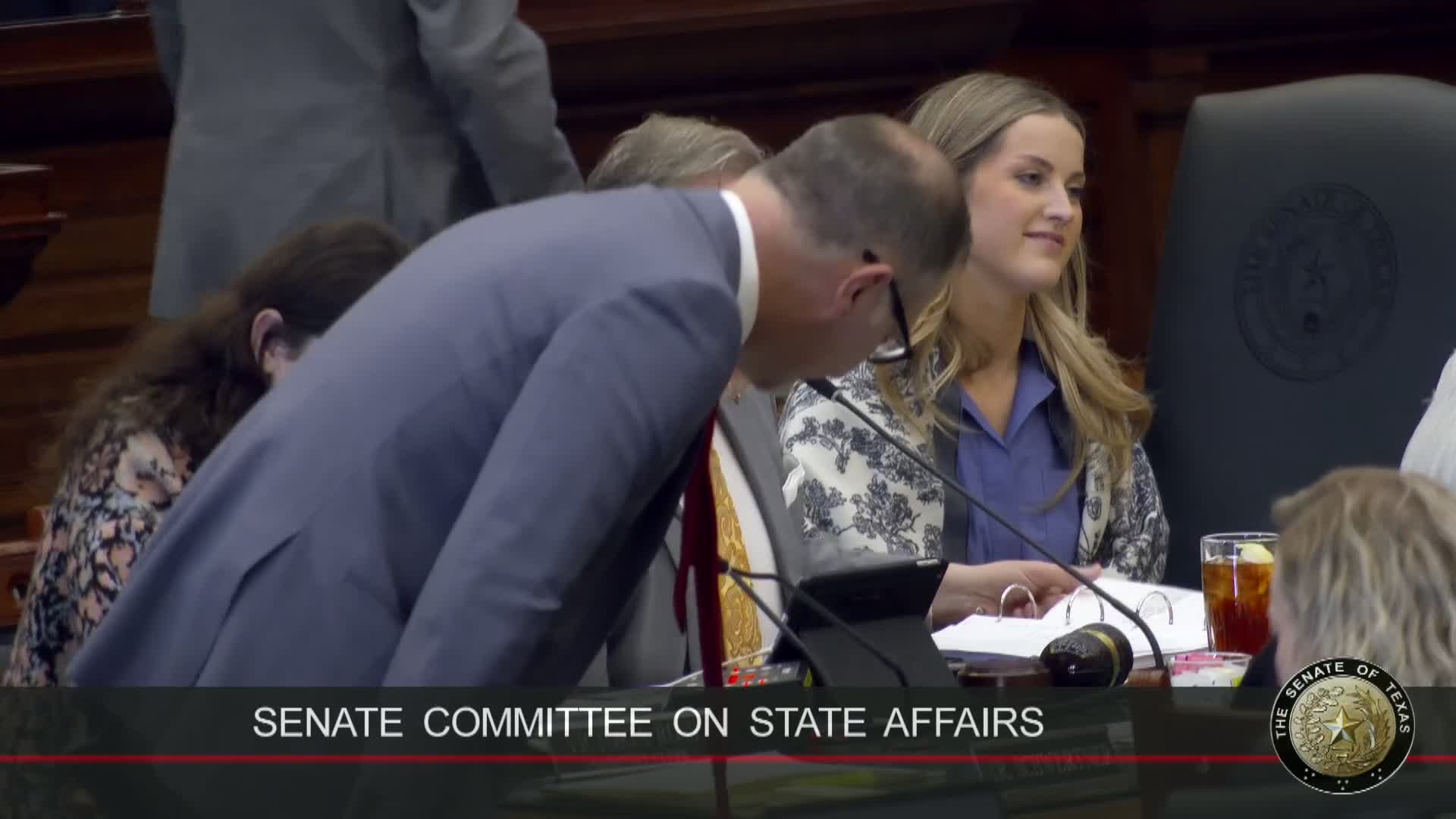Senate committee hears bill shifting legislative immunity from transactional to testimonial
Get AI-powered insights, summaries, and transcripts
Subscribe
Summary
The Senate Committee on State Affairs heard testimony on SB 1386, which would replace blanket (transactional) immunity for compelled legislative testimony with testimonial immunity that prevents use of compelled testimony in criminal prosecutions. The bill drew no public proponents or opponents and was left pending.
Senator Huffman, the bill—author, explained to the Senate Committee on State Affairs that Senate Bill 1386 would change the type of immunity provided to witnesses compelled to testify before the Legislature or a legislative committee.
Huffman said, "Current law does not allow a person called by the legislature or a legislative committee to refuse to testify or produce a document on the grounds that doing so will incriminate the person. In exchange, . . . Texas law grants the person complete immunity from prosecution . . . This is known as transactional or blanket immunity." He added that the committee substitute would "grant testimonial immunity to compelled witnesses," meaning "the testimony or evidence a person must produce may not be used against the person in a criminal prosecution." Huffman also noted the substitute "continues to recognize the right to counsel for witnesses appearing before the Legislature."
The nut graf: The substitute would remove the current incentive to refuse to testify in order to obtain transactional immunity, replacing it with testimonial immunity that bars the use of compelled testimony or evidence in criminal prosecutions, while preserving the Legislature's power to compel testimony and the right of witnesses to counsel.
In committee discussion, Huffman said the proposal is not new and had passed the Senate previously in a different form. He described a prior drafting choice that required a vote of each legislative body for committee subpoenas; he said he removed that requirement from the committee substitute after consulting members. The committee called a resource witness, Shannon Edmonds, but Edmonds had no testimony for the committee at that time. No other witnesses registered for or against SB 1386. The chair closed public testimony and the bill was left pending.
Ending: The committee took no vote on SB 1386 during this hearing; the bill remains pending with public testimony closed.
